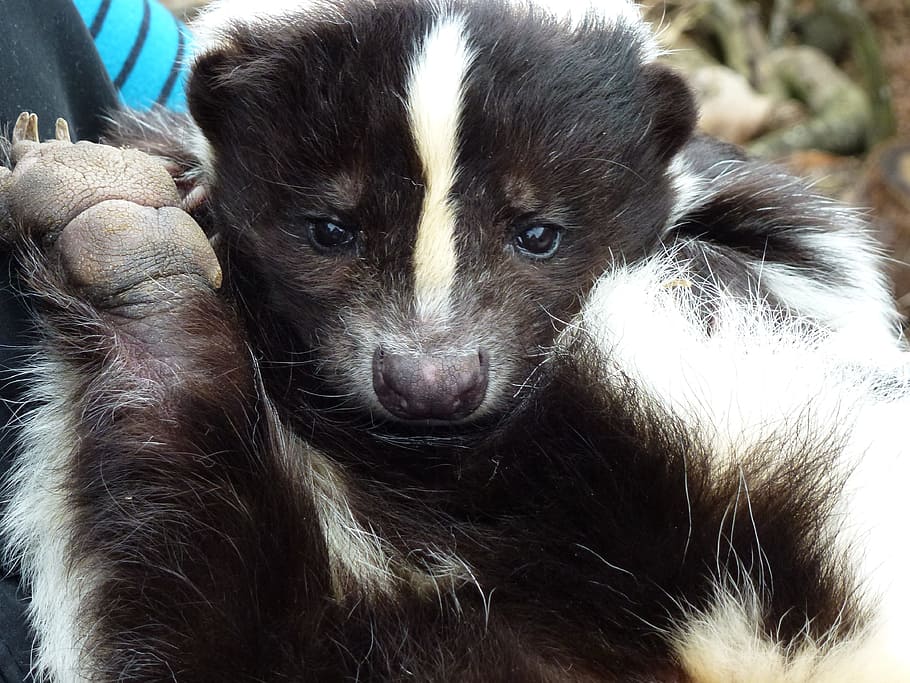Did you know that domestic skunks are becoming quite popular pets? These guys can actually make fun and charming animal companions. And yes, having a lap skunk is as cute as it sounds. However, you’ll definitely want to do some research before adopting one. Here, a local Greater Cincinnati vet offers some advice on skunk care.
The laws on skunk ownership vary widely from state to state. Your city, county, or HOA may also have restrictions. Keep this in mind, especially if there is a chance that you will move.
Only adopt skunks from reputable breeders. Don’t try to adopt a wild skunk! You may want to get more than one. A single skunk may get lonely, and will need more attention. It’s also easier to train more than one. Just be prepared for double trouble!
Many skunks are basically fluffy little tornados. Skunkproofing is a must! In addition to removing anything small, sharp, or toxic, you’ll want to put childproof latches on all your drawers and cupboards, use secure trashcans, and seal off any skunk-sized holes or openings. Skunks love to dig, so you may want to use runners or plastic mats to protect your floors.
Skunks can be litterbox trained, though this may take some trial and error. Just keep in mind that your pet, not you, will choose where the litterbox goes. (Tip: they often like corners.)
Just like any other pet, skunks require proper veterinary care. You’ll need to find a good vet that is experienced with skunks. Your fluffy friend will need to be fixed, dewormed, vaccinated, tested for potential issues, and examined regularly. Needless to say, descenting is also important.
Skunks have very specific dietary needs. There are commercial skunk foods available, but these won’t necessarily provide complete nutrition in and of themselves. You may need to make your pet custom meals, which can be both expensive and time-consuming. The menu should include include things like vegetables, fruits, poultry, store-bought insects, pinkie mice, cheese, and eggs. Your vet may also recommend supplements, such as taurine. Avoid giving your skunk lettuce, cat food, chocolate, deli meat, hot dogs, grapes, raisins, birdseed, or anything high in fat, sugar, or salt. Ask your vet for specific advice.
Please contact us, your Greater Cincinnati vet clinic, anytime. We’re here to help!
